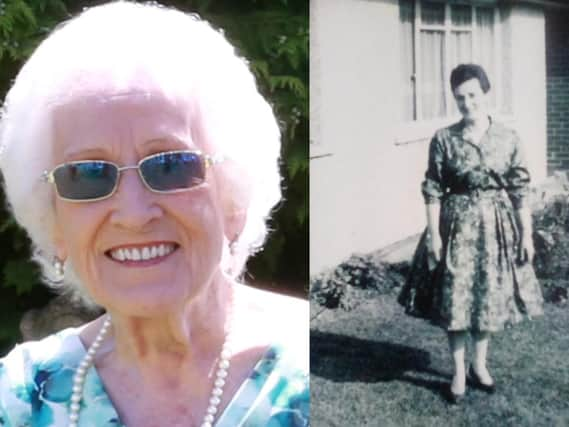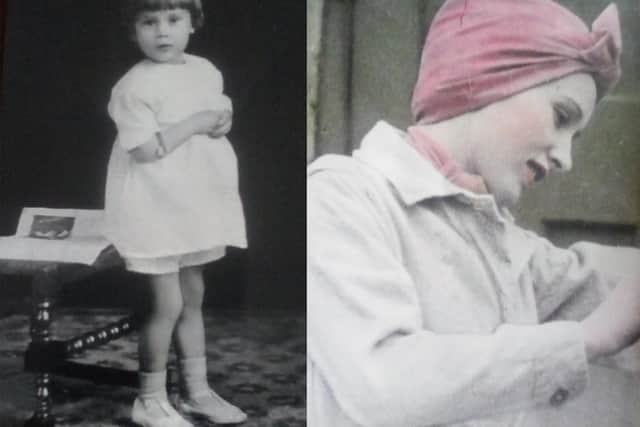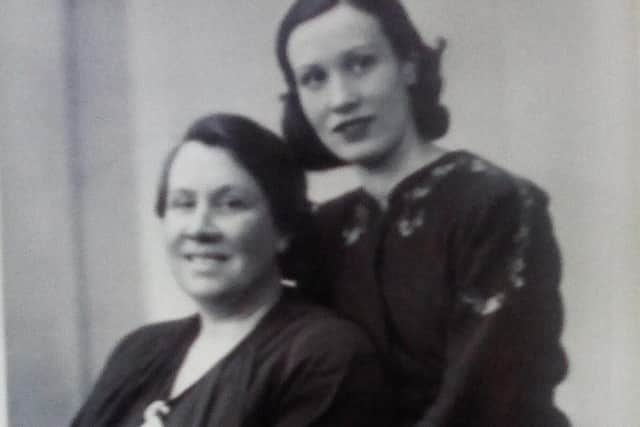The Castleford born munitionette who helped Britain win the war celebrates her 100th birthday


Bessie Allen was born the youngest of three children in Castleford, growing up in Hightown, where she stayed until she got married aged 17.
Throughout her life, Bessie has worked as a carer for the elderly and in the munitions factory during World War Two, filling shells with dangerous explosives.
Advertisement
Hide AdAdvertisement
Hide AdBessie said: “I remember growing up in Hightown as a girl, I used to play with a little doll's pram on a building site, which was soon to become Castleford Hospital.


“When it eventually opened I’d be at school, I remember one day we all went into the field where there was a wooden platform and paper flags for me and the other children to wave for when Princess Mary came to open the same hospital.
“When I got older, I worked as a domestic - one of my jobs was working at Halifax Royal Infirmary then I came home and worked at Colliery House in Glasshoughton.
“I’ve lived all over the country, caring for the elderly in Kent, to living in Hessle in Hull - where my son was born from my second marriage.”
Advertisement
Hide AdAdvertisement
Hide AdOver the course of her life, Bessie married three times - after her second husband passed away, she moved back up to Yorkshire to be closer to her mother, who passed away in 1974.


Bessie eventually retired in 1986.
Back in 2005, she had two potentially life threatening operations which left her in intensive care when she fell ill with stomach cancer, but she soon recovered with fighting spirit.
But throughout her life - Bessie is most proud of the work she did at Thorp Arch during the war, volunteering aged 19 to work at the munitions factory.
Bessie said: “Between the ages of 19 and 25, I worked at Thorpe Arch on munition - I didn’t wait to be called up but if I didn’t I might have been sent away to work instead.
Advertisement
Hide AdAdvertisement
Hide Ad“I decided to go on munitions, working in filling shells, it was monotonous but dangerous work.
“I worked there during the war and I went back to help out during the Vietnam war.
“I was on the exploding powder bit, it caused our skin to go yellow - if you had any hair showing, that would turn yellow too.
“I was once asked to leave work with two other young women by car and we were taken to Castleford to recruit more people to work in munitions.
Advertisement
Hide AdAdvertisement
Hide Ad“There was a big lorry with us riding through Castleford to what used to be the fairground, it had all the bombs onboard.
.“It travelled all the way up Carlton Street, a girl who I knew recognised me with the group and ran to my mum’s house to tell her that she’d seen me.”
During the time Bessie worked there, she was asked to model for a photograph showing Russian factory workers how they should cover their hair when working in munitions and theu correct way to wear the protective suits.
Bessie recalls the conditions in the factory being poor, the windows were blocked up, the hours were long and the air was thick and warm with little circulation.
Advertisement
Hide AdAdvertisement
Hide AdDue to working with dangerous chemicals and powders, Bessie had to have her teeth taken out due to gum damage back in 1952.
The friendly nature and helpful attitude of the workers helped get her through the exhausting night shifts, Bessie said.
“We had quite a few bangs and explosions in the factory, it’s affected my hearing permanently - it was as if a bomb had dropped when a tray of detonators went up.
“One of my fondest memories was when George VI and Queen Elizabeth came to visit us at the factory.
Advertisement
Hide AdAdvertisement
Hide Ad“I remember being really close to them, the King was so good looking, but he might've had make up on! And the Queen’s perfume smelled lovely as she walked past me.
“Times like those made it worth the long day, travelling two hours to and from Thorp Arch on the train and putting our protective gear and makeup on to work these hard shifts.
“We were the forgotten army, I don’t think we ever got acknowledged for the work we did there so I’m proud to be telling the story of the munitions workers.”